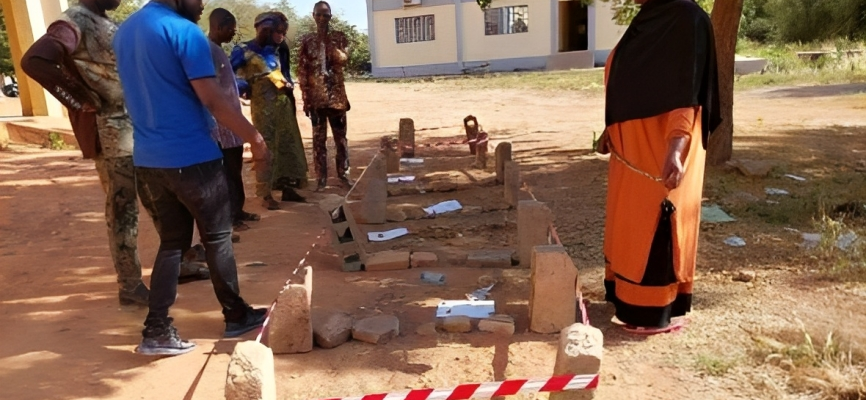Partnership for protection: Keeping communities safe from explosive devices
Burkina Faso |2022 | CBPF
Burkina Faso, Est region. Conflict in Burkina Faso since 2015 has upended the lives of displaced hundreds of thousands of people in Est region. But, even as life slowly returns to normal, one danger they continue to face is the risk of improvised explosive devices and landmines.
They ruin lives long after active fighting is over – children on their way to school, adults taking care of the land to grow food and earn a living can find their lives ruined in an instant, by stepping into the wrong place or playing with the wrong object.
One way to reduce the danger is to improve information and understanding, especially with children and their mothers. Knowing what to look for, and what to do if a device is found, can save lives.
“It’s critical that communities take ownership of risk education,” said Michel Ouoba, a programme officer with national NGO Association Tin Tua.
Local NGOs know the community best, so they are best placed to lead in helping to educate people about risk and how to be safe. The OCHA-managed Regional Humanitarian Fund for West and Central Africa funded Association Tin Tua, a local NGO, in partnership with the Danish Refugee Council (DRC).
With Association Tin Tua as the lead partner, the consortium is providing various kinds of help for people with food security, child protection and – the principal component – mine protection activities in Diapaga, Pama, and Matiacoali communes in Est region.
These activities prioritize reaching women and children with the information they need to stay safe, and how to educate others about the risk.
The partnership exemplifies the localization approach in effectively reaching crisis-affected people.
Association Tin Tua has a history in the region, and the partnership with Danish Refugee Council allows ATT to bring their detailed local knowledge to communities, and DRC to ensure best practices in risk education.
More information on the Regional Fund:
